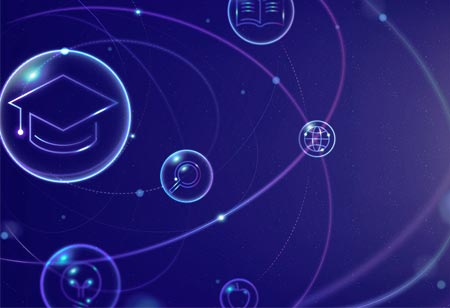THANK YOU FOR SUBSCRIBING
Be first to read the latest tech news, Industry Leader's Insights, and CIO interviews of medium and large enterprises exclusively from Education Technology Insights
Exploring Lucrative Business Prospects in Educational Technology
The education sector has long been ripe for innovation, and in recent decades, educational technology (EdTech) has gradually evolved to complement traditional teaching and learning methods.

By
Education Technology Insights | Tuesday, October 03, 2023
Stay ahead of the industry with exclusive feature stories on the top companies, expert insights and the latest news delivered straight to your inbox. Subscribe today.
In the digital age, the one-size-fits-all approach to education needs a reevaluation. Personalized educational feeds driven by AI have the potential to be a game-changer, similar to how platforms like Google and Facebook revolutionized digital advertising by delivering tailored content.
Fremont, CA: The education sector has long been ripe for innovation, and in recent decades, educational technology (EdTech) has gradually evolved to complement traditional teaching and learning methods. While it's unlikely to entirely replace conventional education, the integration of artificial intelligence (AI) with established digital EdTech tools presents exciting opportunities for disruption and transformation. In this article, we'll explore some of the trending business prospects in EdTech that hold the potential to reshape the future of education.
Networks for Customized Education
In the digital age, the one-size-fits-all approach to education needs a reevaluation. Personalized educational feeds driven by AI have the potential to be a game-changer, similar to how platforms like Google and Facebook revolutionized digital advertising by delivering tailored content. Theoretically, AI-powered platforms can assess each learner's unique preferences, learning styles, and progress to provide a curriculum tailored to their individual needs, interests, and talents. This level of customization could significantly enhance the learning experience and outcomes.
AI-Driven Platforms for Tutoring
Leveraging the application programming interface (API) of powerful language models like Chat GPT can be an excellent entry point for new EdTech firms. A proficient chatbot can serve as a one-on-one tutor, offering personalized feedback and guidance while adapting to the student's pace and learning preferences. By combining the chatbot with high-quality digital educational content created by experts, a potent blend of learning resources and affordable, tailored feedback can be achieved. This approach has the potential to bridge the gap between traditional education and AI-enhanced learning.
Apps for Skill-Based Learning
The ever-changing job market demands continuous skill development. This has led to the rise of skill-based learning apps that offer targeted courses to help individuals acquire specialized skills. Startups like Udacity have embraced this trend by offering nano-degree programs in fields such as data science, artificial intelligence, and digital marketing. These programs include practical projects and mentorship, ensuring that students gain highly sought-after real-world skills. This approach aligns education more closely with industry demands.
Collaborative Learning Platforms
In a digitally connected world, students from diverse backgrounds and locations can come together through collaborative learning platforms, creating a global community of learners. Coursera, for instance, collaborates with universities worldwide to offer courses on a wide range of subjects, allowing students to interact with peers from various cultures and access high-quality education regardless of their geographic location. Collaborative learning platforms promote diversity and enrich the learning experience.







